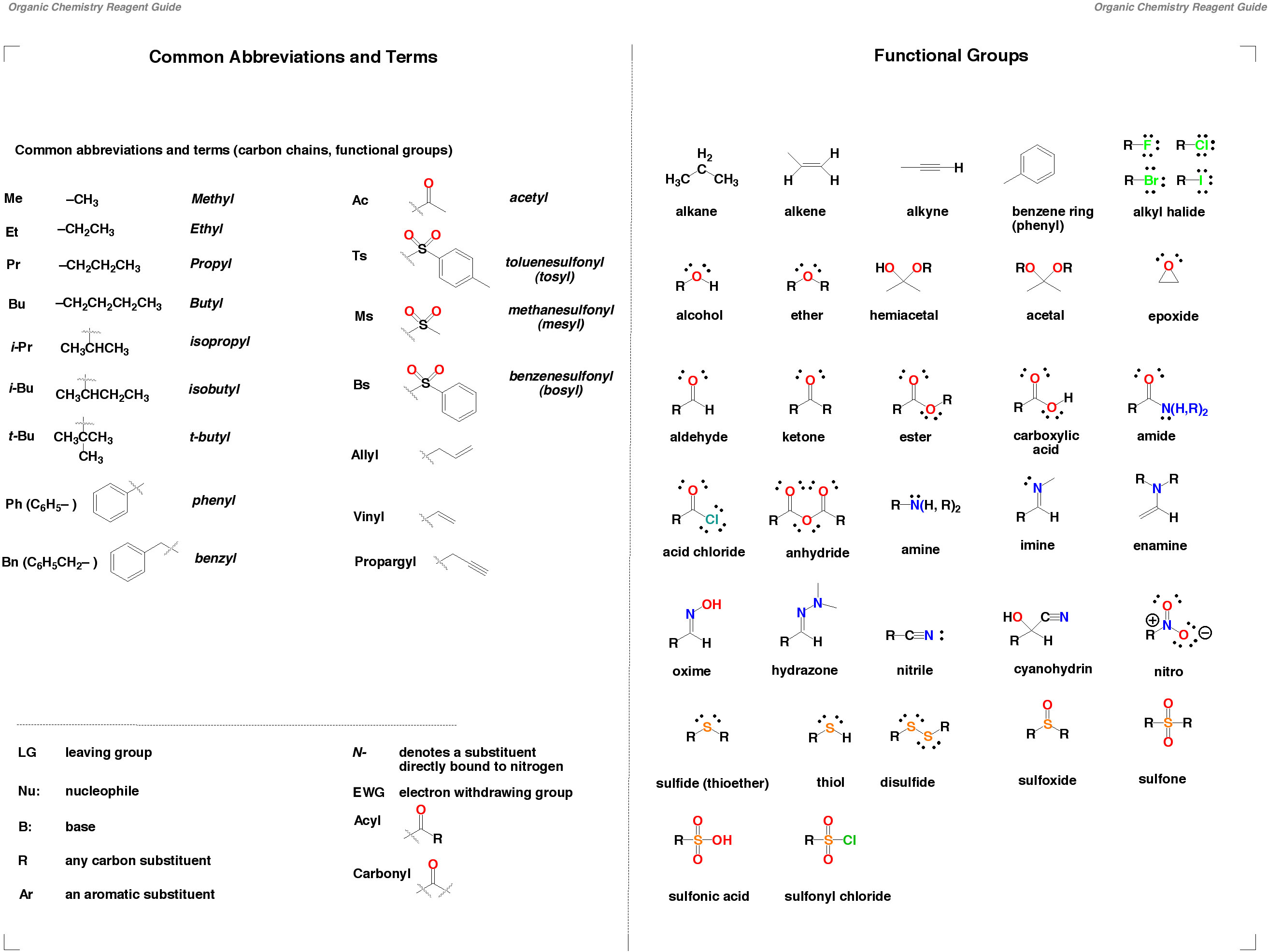Reagent Guide
This page reproduces content from H. Sneddon, in Green and Sustainable Medicinal Chemistry: Methods, Tools and Strategies for the 21st Century Pharmaceutical Industry, L.
Summerton, H. Clark, Royal Society of Chemistry, Cambridge, UK, 2016, ch. It is copyright to the (RSC) and is reproduced here with their express permission. If you wish to reproduce it elsewhere you must obtain similar permission from the RSC. Reagent selection guides can provide assistance in a variety of ways. They can identify alternatives to reagents whose use may be becoming increasingly restricted by legislation; or constrained by individual company targets surrounding reducing usage of materials of concern. They can also assist with the identification of reagents with more benign risk phrases that hence have lower EHS implications as well as those with fewer operational complexities.
They also highlight reagents /procedures which are more atom efficient and can signpoint chemists to reagents that can be used in more benign solvents. Reagent guides provide generalised advice on common reaction classes. More in-depth advice on the scope and utility of specific reagents is beginning to improve and can be accessed through databases and publications exploring the strengths and limitations of reagents. Recommended reading: H. Sneddon, in Green and Sustainable Medicinal Chemistry: Methods, Tools and Strategies for the 21st Century Pharmaceutical Industry, L.
Summerton, H. Clark, Royal Society of Chemistry, Cambridge, UK, 2016, ch. Campbell-Crawford, M. Henderson, C.
Sneddon and M. Walker, Green Chem., 2013, 15, 1542-1549. Stefaniak, Green Chem., 2008, 10, 31-36.
Henderson, A. Redman and H. Sneddon, Green Chem., 2015, 17, 945-949.
McGonagle, D. MacMillan, J.
Jamieson and A. Watson, Green Chem., 2013, 15, 1159-1165. MacMillan, J.
Jamieson and A. Watson, Green Chem., 2013, 15, 596-600.
This resource has been created as part of the IMI funded CHEM21 project (Chemical Manufacturing Methods for the 21st Century Pharmaceutical Industries). CHEM21 has received funding from the Innovative Medicines Initiative Joint Undertaking under grant agreement n°115360, resources of which are composed of financial contribution from the European Union’s Seventh Framework Programme (FP7/2007-2013) and EFPIA companies’ in kind contribution. The educational material is licensed (unless otherwise specified) under Creative Commons license, which gives permission for it to be shared and adapted for non-commercial purposes as long as attribution is given. For full details please see our.
The views expressed in regards to education and training materials represent the aspiration of the CHEM21 consortium, although may not always be the view of each individual organisation. Referencing of external sources does not imply formal endorsement by the CHEM21 consortium.

Sunshine Daydream's Guide to Alchemy updated October, 2018 - updated for Murkmire Potions are consumed to recover health/magicka/stamina or for a significant, albeit short-term, bonus (i.e. Invisibility, speed, damage/critical boost). With their short durations and oftentimes urgent usage, they are generally used from Quick-slots.
Poisons are equipped to apply their effects to some of your weapon attacks; any light attack, heavy attack, or weapon ability will have a 20% chance to apply poison effects. However weapon enchantments will be suppressed if a poison is equipped, so choose carefully which you prefer. Maximum duration for most effects is 10 seconds but some effects max out at 6 seconds. The dilution effect of multiple poison effects also reduces duration; more discussion on this topic will follow below.
The duration of low-level poisons is so short (oftentimes literally 1-2 seconds depending on its effect) that it doesn't seem worth consuming reagents to create them. Those effects with a longer duration may be viable as early as level 20-30, but the more powerful effects have a shorter base duration and won't be worthwhile until later. This guide to alchemy covers:.
(for if you'd already learned all existing traits with our old primer). Our Alchemical Cookbook.: Further Experimentation with the Chart of Alchemical Reactions Alchemy Skills for Everyone (even non-crafting consumers) One rank in Keen Eye (available at skill level 2) might be useful at least on your first character to gather alchemy plants. It's not essential however; my girlfriend is frequently frustrated that she's invested 3 points and I still most often notice the plants from farther away than she does (with the exception of columbine which is so short I don't notice unless I trip over it). When skill points are abundant, I'd invest 3/3 in Keen Eye just to easily and consistently find the reagents. Medicinal Use is about extending potion duration (10%, 20%, 30%) on potions you drink. With a 30 second cool-down, extending short durations by even a few seconds is significant for every consumer and definitely a worthwhile investment.
Regent Guidance Counselor


Eso Reagent Guide
Another skill sometimes discussed for consumers is Snakeblood which reduces (50%, 80%, 100%) the duration of negative effects in potions. Since most alchemists are careful about unwanted reactions, this skill is not on our recommended list.